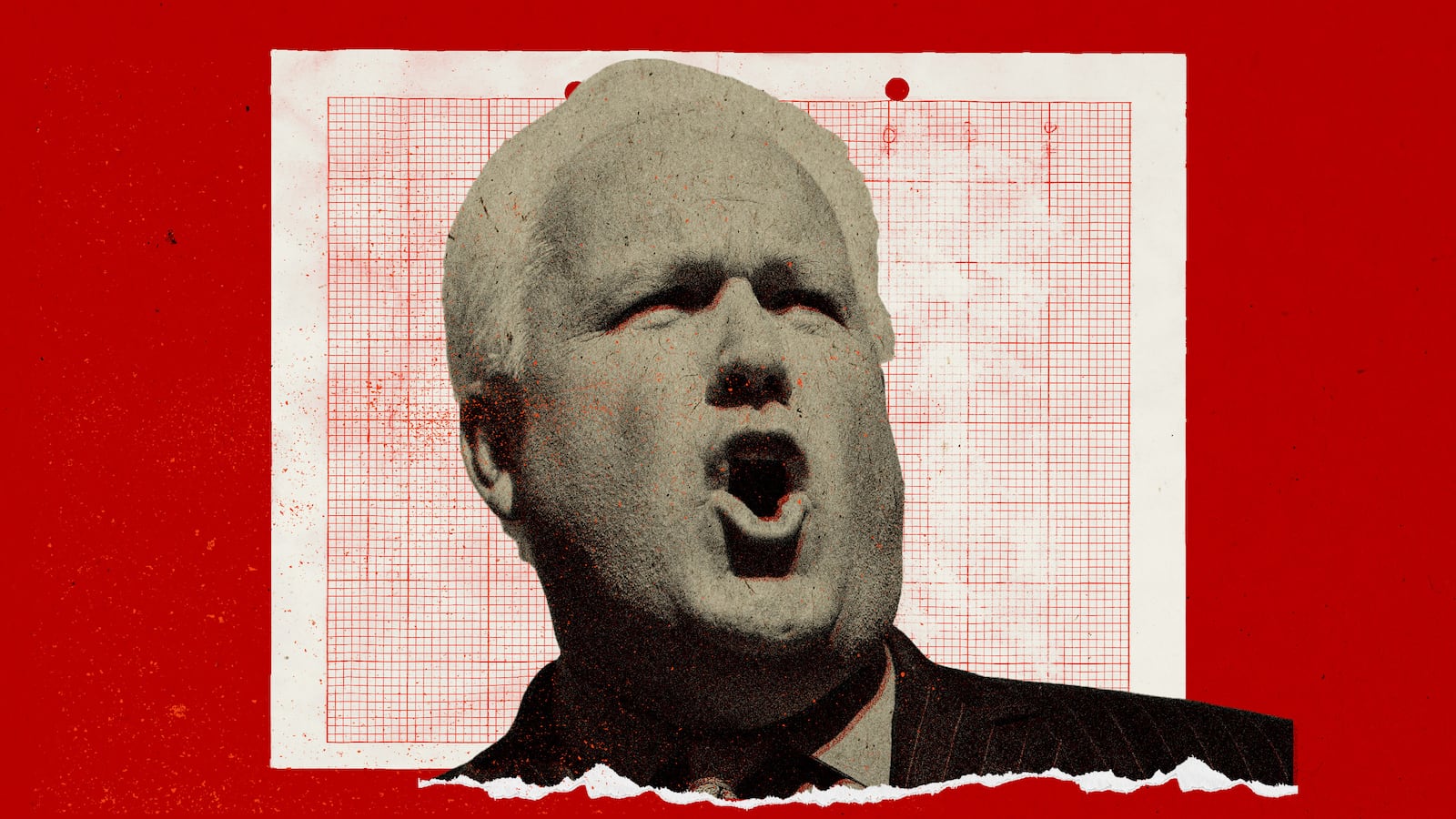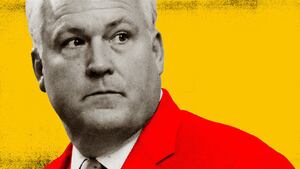Last week The Daily Beast broke a story about a Herschel Walker campaign staffer accusing Matt Schlapp, chairman of the American Conservative Union, of making “sustained and unwanted and unsolicited” sexual contact with the staffer while in a car. As per the story: “The staffer said the incident occurred the night of Oct. 19, when Schlapp… ‘groped’ and ‘fondled’ his crotch in his car against his will after buying him drinks at two different bars.”
If the allegations are true, they’re part of a familiar, age-old narrative: people with power and authority targeting the more vulnerable, junior people in their circles of influence. Over the past few decades, our society has become more conscious of the degradation and damage many are subject to from such behavior.
It was in the late 1990s that we gained great awareness about predatory priests, and the degree to which the Catholic church went to protect them. And with the revelations of Harvey Weinstein’s reign of terror in Hollywood, the #MeToo moment finally brought an end to the normalization of sexual harassment and assaults women everywhere faced in the workplace.
Threats, denials, and deflection—these are the tactics of abusers. And whatever system they work within—be it a church, a corporation, or an industry—abusers of prominence or influence are shielded through complicity and silence.
I have been the target of inappropriate touching in my roles as both a candidate and as chairman of the New Hampshire GOP, once by a former congressman from another state. They were comparably low-level incidents, but I understand the trauma reaction of freezing in the moment. After a few moments I somehow found the wherewithal to take control and stop it from progressing, but I never should have had to.
The same wasn’t true when I was in college and sexually harassed by a professor. I remember well the feelings of intimidation and self-blame that a predator can instill in an inexperienced young woman who was too afraid to tell even her parents, much less school authorities.
As we continue to address these abuses across our cultural spectrum, we have yet to confront the degree to which young people are made vulnerable to such abuse within our system of politics.
Start by evaluating the structure of political campaigns and the offices of elected politicians.
They are staffed almost entirely by naïve young people motivated by sincere convictions but lacking in real-world experience. They are working to do good, to advance principle, and they believe the individual politician they support is an honorable purveyor of that principle.
Their ambition to climb the ladder in a campaign or politician’s office is almost always fueled by a desire to make the world a better place. They admire and are often in awe of those in positions of authority and influence.

This creates an ideal environment for a predator. Late nights in an office phone-banking, long drives around the district for voter events, and mixing and mingling with powerful, high-dollar donors are all part of the job. They also provide openings for career advancement—and abuse.
Whether the behavior involves old-boy chummy, sexually offensive conversations in the office, grabbing, pressing, groping or worse, a junior staffer can be intimidated, frightened, and not know how to protect him or herself.
As these stories become more and more common, there is a familiar theme that threads them together. A senior operative entices a younger, less powerful individual with compliments, tells them how talented they are and offers professional advice. They invite them to dinner and drinks, where there are no witnesses. Should the staffer resist or threaten to report the inappropriate advances, they are threatened with retribution. Or the always effective “Who do you think they will believe?”
Worse than not being believed, however, is learning that the abuse was known, but ignored.
After the 2020 elections, I learned that a fellow co-founder at The Lincoln Project had been making sexual advances toward young men for years, promising them professional advice and advancement in exchange for intimate relationships. When I learned of it, I spoke up immediately and contacted another co-founder. In the course of that conversation, it became apparent that not only did he know all about it, he had known nearly from the beginning.
When I expressed my concern, and then my anger, he yelled at me, accused me of lying, accused others of lying to me, told me there was nothing he could do, and rejected outright the idea that we should just be honest. That’s because it was more important to him to protect the reputation of the organization than to acknowledge the truth. It was more important to him to protect the system, than to protect the victim.
Political campaigns don’t have HR departments where employees can file complaints. And most campaigns hire staffers as contractors, not employees. Doing so puts these staffers in a more precarious position, as they can be more easily fired without cause.
The vulnerability of young staffers is not the only thing about politics that creates a unique threat, however, as I have learned from my own experiences over the years. While I believe that many people who are drawn to politics do so out of a sincere desire to do good, there are too many who are drawn to the power and the spotlight, fueled by arrogance and narcissism, both operatives and candidates.

A campaign manager or PAC chair who believes he truly can do no wrong, who perceives himself to be more brilliant, more valuable, of greater height than all others, becomes increasingly dangerous. Once he convinces himself that he is indispensable and untouchable, it’s easy for him to excuse the worst behavior and circumvent accountability.
Politics is a selfish arena, where everyone on the team is trained to advance the ambitions of the candidate or chairman, and led to believe that the greater good requires you to protect that person from public scrutiny or accountability. That has to change.
It is far past time to remake the dynamic in political campaigns and in politicians' offices.
A young man who is just doing his job, acting as a driver for an out-of-town guest of a campaign should never have to worry about whether or not he is going to be groped in the front seat, any more than a young woman should have to worry about being pressed up against a desk.
No one should ever be subject to such assaults on their dignity or their bodies. As chairman of the New Hampshire GOP I took responsibility for the well-being of my staff and was called on to respond on their behalf when they felt uncomfortable in a situation. But, too often, that does not happen in politics.
The only way to create accountability in the system is through the donors who fund these campaigns and efforts. Even the most narcissistic politician will bow to those who sign the checks that fund the operation. In fact, they are often the only people they feel accountable to.

The problem is that too often donors have no way of knowing about the behavior of the principals. Or, as in the case of the Lincoln Project, public denials of knowledge are accepted or forgiven without proof of accountability. Accountability must always begin with an acknowledgment of the truth.
If the allegations against Schlapp are true, they represent rank hypocrisy by a self-professed conservative who regularly lambasted Democrats for sexual improprieties while gleefully defending a Republican president who bragged about grabbing women by their genitals.
But worse than hypocrisy is the culture of abuse, propped up by institutions and enabled by silence. It must end.
Jennifer Horn is a registered independent who previously served as a co-founder of The Lincoln Project, New Hampshire GOP chairman, RNC Executive Committee Member, and GOP congressional candidate.









